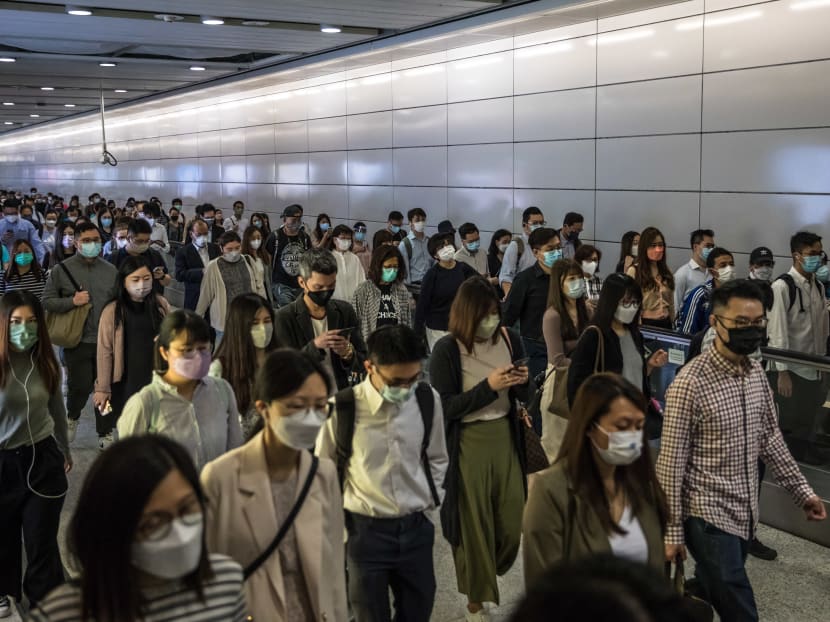1 in 5 recovered Covid patients suffer from dry eyes, Hong Kong study finds
HONG KONG — One in five people who have had Covid-19 suffer from at least one symptom related to dry eye disease such as blurred vision or itching, according to a study from the Chinese University of Hong Kong.

The most common symptom was blurred vision, followed by itching, pain or burning sensations, tearing or discharge and redness, while grittiness, light sensitivity and lid swelling were the least common problems.
HONG KONG — One in five people who have had Covid-19 suffer from at least one symptom related to dry eye disease such as blurred vision or itching, according to a study from the Chinese University of Hong Kong.
Researchers from the department of ophthalmology and visual sciences also found the risk of dry eye disease (DED), which can significantly impair daily social and physical activities, was related to the severity of the infection.
Hong Kong recorded 7,685 coronavirus infections on Monday (March 28), while 168 deaths were reported, including 25 backlogged cases. The latest report brought the total number of confirmed cases in the city to 1,136,192, with 7,420 related deaths.
The research team evaluated 228 recovered Covid-19 patients one to three months after their diagnosis in 2020 and compared them with 109 healthy participants who had not been infected with the virus.
Researchers found that the patients who had previously caught Covid-19 were at a higher risk of developing symptoms relating to dry eye disease, with 21.5 per cent having at least one indicator associated with the condition.
The most common symptom was blurred vision, followed by itching, pain or burning sensations, tearing or discharge and redness, while grittiness, light sensitivity and lid swelling were the least common problems.
The study also showed that the tear break-up time — an indicator of tear evaporation — was 1.6 seconds shorter in recovered patients who had received any form of supplementary oxygen during hospitalisation compared with the average duration of 10 seconds in healthy individuals.
Researchers said the results implied a higher likelihood of DED in patients who required oxygen compared with those who did not, adding that such treatment might increase the pace at which evaporation occurs on the tear film on the outer surface of the eye.
The team also found that every one-point reduction in CT value, a measure inversely correlated with viral load, from respiratory specimens collected during hospital admission increased the risk of incurring dry eye symptoms by 10 per cent during the first month after recovery.
“This finding suggests the risk of tear film instability after recovery from Covid is associated with the severity of the acute infection,” said Dr Kelvin Wan Ho-nam, the lead author of the study and an assistant professor from the department.
Dr Kelvin Chong Kam-lung, the study’s principal investigator and an associate professor from the department, said the findings had uncovered an additional reason as to why Hongkongers should get fully vaccinated as soon as possible.
“Vaccination remains the most effective measure in preventing post-Covid-19 eye symptoms and all other longer-term sequelae.”
The findings were published in the international journal Clinical and Experimental Ophthalmology. SOUTH CHINA MORNING POST









